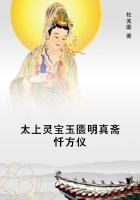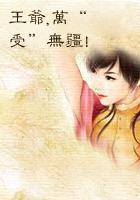Then the tower stairs got very narrow and dark, and we went on up, and we came to a door and opened it suddenly, and it was like being hit in the face, the light was so sudden. And there we were on the top of the tower, which is flat, and people have cut their names on it, and a turret at one corner, and a low wall all round, up and down, like castle battlements. And we looked down and saw the roof of the church, and the leads, and the churchyard, and our garden, and the Moat House, and the farm, and Mrs Simpkins's cottage, looking very small, and other farms looking like toy things out of boxes, and we saw corn-fields and meadows and pastures. A pasture is not the same thing as a meadow, whatever you may think. And we saw the tops of trees and hedges, looking like the map of the United States, and villages, and a tower that did not look very far away standing by itself on the top of a hill. Alice pointed to it, and said--'What's that?'
'It's not a church,' said Noel, 'because there's no churchyard.
Perhaps it's a tower of mystery that covers the entrance to a subterranean vault with treasure in it.'
Dicky said, 'Subterranean fiddlestick!' and 'A waterworks, more likely.'
Alice thought perhaps it was a ruined castle, and the rest of its crumbling walls were concealed by ivy, the growth of years.
Oswald could not make his mind up what it was, so he said, 'Let's go and see! We may as well go there as anywhere.'
So we got down out of the church tower and dusted ourselves, and set out.
The Tower of Mystery showed quite plainly from the road, now that we knew where to look for it, because it was on the top of a hill.
We began to walk. But the tower did not seem to get any nearer.
And it was very hot.
So we sat down in a meadow where there was a stream in the ditch and ate the 'snack'. We drank the pure water from the brook out of our hands, because there was no farm to get milk at just there, and it was too much fag to look for one--and, besides, we thought we might as well save the sixpence.
Then we started again, and still the tower looked as far off as ever. Denny began to drag his feet, though he had brought a walking-stick which none of the rest of us had, and said--'I wish a cart would come along. We might get a lift.'
He knew all about getting lifts, of course, from having been in the country before. He is not quite the white mouse we took him for at first. Of course when you live in Lewisham or Blackheath you learn other things. If you asked for a lift in Lewisham, High Street, your only reply would be jeers. We sat down on a heap of stones, and decided that we would ask for a lift from the next cart, whichever way it was going. It was while we were waiting that Oswald found out about plantain seeds being good to eat.
When the sound of wheels came we remarked with joy that the cart was going towards the Tower of Mystery. It was a cart a man was going to fetch a pig home in. Denny said--'I say, you might give us a lift. Will you?'
The man who was going for the pig said--'What, all that little lot?' but he winked at Alice, and we saw that he meant to aid us on our way. So we climbed up, and he whipped up the horse and asked us where we were going. He was a kindly old man, with a face like a walnut shell, and white hair and beard like a jack-in-the-box.
'We want to get to the tower,' Alice said. 'Is it a ruin, or not?'
'It ain't no ruin,' the man said; 'no fear of that! The man wot built it he left so much a year to be spent on repairing of it!
Money that might have put bread in honest folks' mouths.'
We asked was it a church then, or not.
'Church?' he said. 'Not it. It's more of a tombstone, from all I can make out. They do say there was a curse on him that built it, and he wasn't to rest in earth or sea. So he's buried half-way up the tower--if you can call it buried.'
'Can you go up it?' Oswald asked.
'Lord love you! yes; a fine view from the top they say. I've never been up myself, though I've lived in sight of it, boy and man, these sixty-three years come harvest.'
Alice asked whether you had to go past the dead and buried person to get to the top of the tower, and could you see the coffin.
'No, no,' the man said; 'that's all hid away behind a slab of stone, that is, with reading on it. You've no call to be afraid, missy. It's daylight all the way up. But I wouldn't go there after dark, so I wouldn't. It's always open, day and night, and they say tramps sleep there now and again. Anyone who likes can sleep there, but it wouldn't be me.'
We thought that it would not be us either, but we wanted to go more than ever, especially when the man said--'My own great-uncle of the mother's side, he was one of the masons that set up the stone slab. Before then it was thick glass, and you could see the dead man lying inside, as he'd left it in his will. He was lying there in a glass coffin with his best clothes--blue satin and silver, my uncle said, such as was all the go in his day, with his wig on, and his sword beside him, what he used to wear. My uncle said his hair had grown out from under his wig, and his beard was down to the toes of him. My uncle he always upheld that that dead man was no deader than you and me, but was in a sort of fit, a transit, I think they call it, and looked for him to waken into life again some day. But the doctor said not. It was only something done to him like Pharaoh in the Bible afore he was buried.'
Alice whispered to Oswald that we should be late for tea, and wouldn't it be better to go back now directly. But he said--'If you're afraid, say so; and you needn't come in anyway--but I'm going on.'
The man who was going for the pig put us down at a gate quite near the tower--at least it looked so until we began to walk again. We thanked him, and he said--'Quite welcome,' and drove off.
We were rather quiet going through the wood. What we had heard made us very anxious to see the tower-- all except Alice, who would keep talking about tea, though not a greedy girl by nature. None of the others encouraged her, but Oswald thought himself that we had better be home before dark.
As we went up the path through the wood we saw a poor wayfarer with dusty bare feet sitting on the bank.















